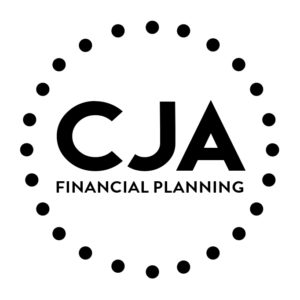![]()

Keep your retirement plans on track
The COVID-19 pandemic is having a widespread impact on all aspects of our finances, including retirement planning. However, while recent stock market volatility undoubtedly poses a challenge,
particularly for those close to retirement, it is important not to allow the outbreak to derail your plans. A resilient retirement plan One thing the pandemic has vividly highlighted is the importance of developing a resilient retirement plan. Although market turbulence will impact all pension holders, those with a clearly defined, carefully considered plan will inevitably be in much better shape to weather market volatility. For instance, as they approach retirement, an increasing proportion of their pension fund will be ‘lifestyled’, meaning it shifts to ‘safer’ havens such as cash, gilts or bonds, thereby limiting their overall level of investment risk.
Stay the course
At times like these, it is also vitally important to remember pension savings are designed for the long term. This means that, particularly in the case of younger investors, there should be plenty of time for markets to recover and pension pots to achieve growth aspirations before retirement income is required. In addition, making decisions based on short-term economic upheaval can be extremely risky, with the potential to lock in losses following declines in investment values. Historically the best strategy is therefore generally to be patient, resist the urge to sell and stick to a long-term investing philosophy. For those closer to retirement, now is a good time to take stock of your full complement of retirement resources before making any decisions, this will involve reviewing your pensions, and any other savings and investments. We can review your level of income and whether this has been adversely impacted by, for example, reduced savings rates or cut dividends.
Making your pension last
Another factor that could impact pension holders’ response to the pandemic relates to staggered retirement. As a result of increased longevity, a greater proportion of the population now withdraw more gradually from work, as retirees find an optimum work-life balance that accommodates their specific needs. This trend clearly provides for greater flexibility with part-time work enabling many pensioners to preserve retirement funds into later life – an increasingly popular choice for many.
Advice increasingly essential
Perhaps unsurprisingly given the heightened economic uncertainty, the past few months have seen a sharp rise in demand for professional financial advice. Indeed, it has never been more important for people to obtain sound advice in order to ensure their retirement plans remain firmly on track.
We’re here to help
So, if you are concerned about the impact of coronavirus on your plans, talk to us. We will help you see the bigger picture, weigh up all your options and make a balanced assessment of risks
tailored specifically to your individual needs.

REASSURANCE FOR SAVERS
In the spring, a surge was reported in the number of people enquiring about and opening savings accounts, as they sought to secure the best rates, before interest rate cuts fed through to savings
rates and to benefit from a secure home for their money.
For UK savers, the Financial Services Compensation Scheme (FSCS) can provide a safeguard adding a valuable level of reassurance. If you have any money in an account with a UK authorised
bank, building society or credit union that fails, the FSCS will compensate you:
• up to £85,000 per eligible person, per bank, building society or credit union
• up to £170,000 for joint accounts.
You do not need to take any action, the FSCS will automatically compensate you.
Attention to detail
The cover applies to the total sum of money held but because some banks share a banking licence, this will affect how much of your money is protected. If you hold over £85,000, it needs to be
spread across different banks that don’t share a licence to benefit from full FSCS protection. If you hold multiple accounts with banks that share the same banking licence, anything you hold over £85,000 will not be protected.
We can help you keep on top of your cash balances.
The value of investments can go down as well as up and you may not get back the full amount you invested. The past is not a guide to future performance and past performance may not necessarily be repeated.
UNCLAIMED PENSION POTS TOP £19.4BN
Research1 has shown that because only 1 in 25 people consider telling their pension provider when they move home, around 1.6 million pension
pots totalling £19.4bn – the equivalent of nearly £13,000 per pension pot – have gone unclaimed. Estimates from the government suggest that there
will be as many as 50 million dormant and lost pensions by 2050. In 2017, over 375,000 attempts were made to contact customers, leading to £1bn in
assets being reunited with them.
TEMPER YOUR INCOME EXPECTATIONS AS DIVIDEND DROUGHT DESCENDS
The economic shock from COVID-19 has provided a blow to income investors, with 45% of UK companies cutting dividends this year and more
expected to follow suit as the year progresses. Forecasts suggest over £52bn in company dividends are at risk in the UK this year2. The data
highlights the biggest impacted sector is banks, while defensive dividends are more likely to be safe, such as food retail, healthcare, drink and tobacco, and basic consumer goods.
In addition, in May, the Treasury announced that companies borrowing over £50m through the Coronavirus Large Business Interruption Loan Scheme would be subject to restrictions, including a ban on dividend payments to shareholders, except where they were previously agreed, adding a further potential dampener on investors’ income expectations this year.
¹ABI, 2020
2Link Assets, 2020
Spreading risk has always made sense
Almost exactly 50 years ago, a company few people had previously heard of was hitting the headlines as the price of its shares went stratospheric. A few months later it came back to earth with a crash. Fortunes were made and lost after mining company Poseidon announced the discovery of new nickel ore reserves in Western Australia just as world nickel prices hit a new high.
Poseidon misadventure
Poseidon shares had been trading at A$0.80 in the second half of 1969 when they took off. The price climbed relentlessly for weeks as investors claimed their piece of the action. One day in February 1970, the shares touched A$280.00. Then the profit-taking began and the share price crashed. Nickel prices later dropped back and the Poseidon nickel ore was low quality; receivership
ensued in 1974.
Fast-forward 20 years and a new ‘rising star’ of the stock market burned out. A minor fashion house called Polly Peck had been acquired by new owners in 1980 and used as a vehicle for ventures in Northern Cyprus. A series of deals in the 1980s brought such growth that the company’s shares entered the FTSE 100. In September 1990, Polly Peck shares were suspended amid fraud allegations.
FOMO frenzy – 300 years ago!
The loss suffered by many investors in Poseidon or Polly Peck was a painful lesson about impossible returns and concentration of risk. There had been plenty of previous warnings, right back to the South Sea Bubble in 1720, about blindly following the herd in a FOMO frenzy. Speculative investment has always had particular risk attached and that is all the greater if it is not diversified.
The value of diversifying your portfolio with collective investments
As a general principle, any investment in shares needs to be spread around, so that if one share price slumps badly it only affects a proportion of your overall portfolio. For many investors, a sound way to achieve a spread of risk is through collective investment schemes with risk profiles aligned to suit their needs. We can advise on the investment strategies and products most appropriate for your objectives and needs.
Speculative investment has always had particular risk attached and that is all the greater if it is not diversified
 Estate planning – making plans to protect
Estate planning – making plans to protect
your family’s financial future
In addition to organising your finances to ensure your assets are protected for your loved ones on your death, estate planning also encompasses ensuring you have enough money to live on; it is a tenuous balance for many. A good starting point is obtaining a comprehensive view of your assets, to assess the value of your
estate and ensuring you have the right documentation in place, such as Wills, Lasting Powers of Attorney (LPA) and the formation of any relevant trusts.
To establish the value of your estate; calculate the total worth of your assets, including your home, any other property, money and savings, shares and investments,
business equity, cars, jewellery and other personal possessions. To determine the value of non-monetary assets, apply a realistic market value. Then deduct debts
and liabilities, including any outstanding bills, mortgage debt, loans, credit cards, overdrafts, and funeral expenses.
Wills, trusts and LPA
Once you’ve valued your estate, outlining a clear plan detailing your wishes about how you want your estate managed upon your death, will ensure that when the person looking after your estate applies for probate they will know what your wishes were. Vital components of successful estate planning include having a valid Will in place and setting up trusts to manage money or other assets
on behalf of beneficiaries. There are various types of trusts which provide an alternative to direct inheritance or transfer of certain parts of an estate, giving you control over who receives what and when. Lasting powers of attorney, covering ‘health and welfare’ and ‘property and financial affairs’ are worth establishing at an early stage.
IHT
Estate planning can reduce the amount of IHT payable, enabling you to pass on assets to your family as intended. For individuals, the current IHT nil-rate threshold is £325,000 and £650,000 for a married couple or civil partners. Any unused portion of the nil-rate band can be passed to a surviving spouse or civil partner on death. Beyond these thresholds, IHT is usually payable at a rate of 40%. A main residence nil-rate band applies if you want to pass your main residence to a direct descendant. For the current tax year, this allowance is £175,000 for individuals and £350,000 for a married couple or civil partners. Added to the existing threshold of £325,000 this could give rise to an overall IHT allowance of £500,000 for individuals, or £1m for those who are married or in civil partnerships. It is important to note that larger estates will find that residence relief is tapered, reducing by £1 for every £2 by
which the net estate’s value exceeds £2m.
Gifting from surplus income is a simple way of passing money to the next generation. Conditions apply, and advice would be needed to ensure that the gifts are made in the right way.
We can help
We can advise you, to ensure your money ends up with the people you want, for the reasons you choose. We can help you to pass on assets in the most effective way, and work with you to reduce your IHT liability.
Focus on the horizon
Investors will understandably be pondering their portfolios as economic challenges endure. You may have heard the age-old investment dictum – time in the market, not timing the market. If so, recent research3 has explored the concept, with some very compelling results.
In March 2000, during the height of the dot-com boom, if an investor made an investment of £1,000 in the average investment company and reinvested the dividends, the original investment would have been worth £3,665 as at 6 April 2020, a return of 267%, (here ‘investment company’ includes investment trusts and other closed-ended investment companies but excludes venture capital trusts and 3i Group plc.) This 20-year period includes the dot-com crash, the global financial crisis and the more recent COVID-19 related market falls.
Commenting on the findings, Annabel Brodie-Smith of the Association of Investment Companies said: “The bursting of the tech bubble and the global financial crisis saw huge falls in markets… However, investors who were able to stay invested or even invest during the downturn would have been richly rewarded over the long term. No one has a crystal ball, but these returns show the power of long-term investment and why it can often pay to have one eye on your portfolio and the other on the horizon.”
3AIC, April 2020
Global economy braced
The pandemic has inflicted enormous human costs right across the globe. The worldwide response, which has involved governments imposing a range of lockdown measures, will inevitably have a huge impact on global economic activity.
Contraction across Europe – The release of first quarter GDP data provided a foretaste of the economic damage the pandemic is set to wreak. In the UK, for example, output fell by 2% across the first three months of 2020, with the economy shrinking by a staggering 5.8% in March alone.
Data for the 19-country Eurozone showed an even larger decline, with output across the bloc falling by a record 3.8% in the January– March period. France and Italy both plunged into recession, with quarterly contractions of 5.8% and 4.7%, respectively, while the German economy also slipped into recession with first quarter GDP down 2.2%.
US and Japan economies shrinking – According to preliminary estimates, the US economy shrank at an annualised rate of 4.8% in the first quarter, ending a record streak of expansion stretching back to 2014. And the Japanese economy, which was already struggling following a sales tax hike last October, also fell, contracting at an annualised rate of 3.4% in the opening three months of 2020.
China’s economy also reeling – The growth rate in China fell sharply as well, with the world’s second-largest economy shrinking at an annualised rate of 6.8% during the first quarter. The Chinese authorities have now abandoned setting a growth target, which may be an acknowledgement of the challenges facing its struggling economy amid heightened international hostilities due to the COVID-19 fallout.
‘Sharpest downturn since 1930s’ – Continuing uncertainties surrounding the future spread of COVID-19 and the likelihood of developing a successful vaccine obviously make it difficult to predict the future path of the global economy. However, the International Monetary Fund’s latest assessment suggests we are facing the steepest economic downturn since the Great Depression.
Potential rebound? – While the IMF has stressed that its predictions are marked by ‘a higher than- usual degree of uncertainty’, it is forecasting a rebound next year with the global economy expected to grow at a rate of 5.4% as activity normalises4. However, if a second outbreak did occur, that could effectively keep the world in recession for a second consecutive year.
4IMF, 2020
FRAUD GOES VIRAL – IF IT SOUNDS TOO GOOD TO BE TRUE, IT PROBABLY IS
UK fraud prevention groups are warning individuals to be extra vigilant following a huge increase in the number of scams seeking to exploit the pandemic; as these scams increase in sophistication, we are all vulnerable.
Your best tactic is to equip yourself to stay ScamSmart; you can do this through checking the FCA website www.fca.org.uk/scamsmart. Action Fraud5 revealed there was a massive 400% increase in reporting of scams in March. As scams continue to increase in sophistication it is harder than ever to distinguish them from the real thing.
Remember:
- Reject offers that come out of the blue
- Do not click on links from senders you do not know
- Be wary of deals that sound too good to be true
- Never give out personal details
- Take the time to make checks and seek financial guidance.
Here to help
If you are unsure about any financial opportunities, please contact us first. 5Action Fraud, 2020
PENSIONS WITHDRAWALS – CONSIDER YOUR OPTIONS
The latest data6 on flexible payments from pensions shows that in Q1 2020, almost £2.5bn was withdrawn from pensions – a 19% increase on Q1 2019 withdrawals, and the highest recorded Q1 of any year since pensions freedoms began. Although the average amount withdrawn per person was £7,100 (down 3% from Q1 2019 £7,300), the total value of flexible withdrawals from pensions since flexibility changes in 2015 has now exceeded £35bn.
Make the right decision
Before taking any action, it is sensible to consider all your options. Pensions are designed to provide you with an income throughout your retirement. Taking out more money than you need to, or starting sooner, will mean you have less to live off in the future.
6HMRC, Apr 2020
The value of investments can go down as well as up and you may not get back the full amount you invested. The past is not a guide to future performance and past performance may not
necessarily be repeated.
It is important to take professional advice before making any decision relating to your personal finances. Information within this newsletter is based on our current understanding of taxation and can be subject to change in future. It does not provide individual tailored investment advice and is for guidance only. Some rules may vary in different parts of the UK; please ask for details. We cannot assume legal liability for any errors or omissions it might contain. Levels and bases of, and reliefs from, taxation are those currently applying or proposed and are subject to change; their value depends on the individual circumstances of the investor.
The value of investments can go down as well as up and you may not get back the full amount you invested. The past is not a guide to future performance and past performance may not necessarily
be repeated. If you withdraw from an investment in the early years, you may not get back the full amount you invested. Changes in the rates of exchange may have an adverse effect on the value or price of an investment in sterling terms if it is denominated in a foreign currency. Taxation depends on individual circumstances as well as tax law and HMRC practice which can change.
The information contained within this newsletter is for information only purposes and does not constitute financial advice. The purpose of this newsletter is to provide technical and general guidance and should not be interpreted as a personal recommendation or advice. The Financial Conduct Authority does not regulate advice on deposit accounts and some forms of tax advice.





